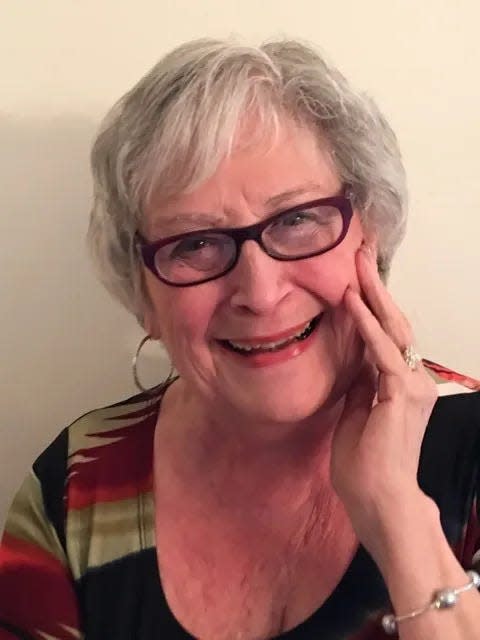Susan Keezer: Reflections on the pandemic
We were having lunch and debating over which dessert to indulge in. We had already indulged in some family discussion so felt we deserved a few calories. Chocolate? Lemon?
Cheesecake? What?
I am not sure when we started thinking back to the beginning of the pandemic but suddenly there we were, my cousin and I, reliving those first frightening months. Those months before the vaccine was available. The terrifying months when hospitals were burgeoning with patients with COVID-19.

We talked about how we had signed up for the vaccine with our doctors’ offices, pharmacies, counties and waited for calls for months. I remember I waited for a very long time while a friend got hers immediately and got a second call from the same hospital to come in: She’d hit the lottery process twice.
Then I got an email from Lenawee County telling me to be at the building on the Fair Grounds at 2 p.m. the next day for my first vaccine. The relief I felt was enormous.
Janie and I talked about going into stores, wearing masks, and seeing empty shelves where there were usually hundreds of loaves of bread. We laughed uneasily about the shortages of toilet paper.
We talked about the sick people in nursing homes and hospitals whose families couldn’t visit them because of the fear that the virus might sneak in if it wasn’t already there. Janie’s brother was ill with COVID-19 in Alabama and succumbed to it. His doctors said that had he survived, his brain had been oxygen-deprived for so long … they didn’t need to explain further.
The nation’s half-million death toll was passed quickly.
We sat there and talked about how wonderful it was that the crisis peaked and passed.
But we also knew that the virus was not wiped out. Variants continued to pop up.
Janie and I talked about that terrible time and how now it seems like a bad dream.
We talked about the scientists who so quickly developed that vaccine that saved lives.
We are so grateful for them and all the doctors and nurses who worked tirelessly taking care of patients while risking their own health.
But we cannot just sit back and assume everything will be fine. We have to be diligent.
Wear that mask again if you are in a crowded store. Keep your little ones safe.
Be alert. If you are sick, stay home.
It is just too easy to sit back and think we are safe because COVID-19 isn’t in the headlines any longer. But it is there. It sends out variations of itself. We have to be alert.
We have to protect ourselves, our children and those who are vulnerable.
COVID is like a modern-day bubonic plague. Except that, in today’s world, science has the ability to offer protection, and we have the medical profession to care for us.
In England, there is a tiny village that managed to save over half its population from the plague in 1666. Small Eyam, in the Peak District, was ahead of its time in showing intelligence during a time when millions across Europe were dying.
It is said that a clothier’s assistant, one George Viccars, brought home a bolt of cloth, newly arrived from London. He unrolled it and hung it in front of the fire to dry out. The warmth awakened the fleas in the cloth. They carried the plague. George was bitten and one of the first villagers to die. The fleas infected others who infected others and most died. Many thought leaving the village would save them. If they were infected, they went out and infected others. In one family, the wife buried her children and husband in one week.
Two pastors in the village, with opposing religious views, agreed to encourage the residents to stay and quarantine themselves. It was not an easy decision but eventually, the villagers agreed.
They let no one in and no one could leave. The Earl of Devonshire offered to deliver food to the edge of the village while its inhabitants remained inside.
As a result of the quarantine, only 260 of the village’s 800 residents succumbed to the plague. They isolated themselves for 14 months. Had they done this when they first started to become infected, more lives would have been saved perhaps.
Seventeenth-century science didn’t know that isolation would help contain the bubonic plague. Two pastors in a small village urging their villagers to stay and not leave inadvertently found success in curbing contagion.
Asking us to use masks is a small thing compared to asking us not to leave our homes and towns for over a year, isn’t it?
— Susan Keezer lives in Adrian. Send your good news to her at lenaweesmiles@gmail.com.
This article originally appeared on The Holland Sentinel: Susan Keezer: Reflections on the pandemic
